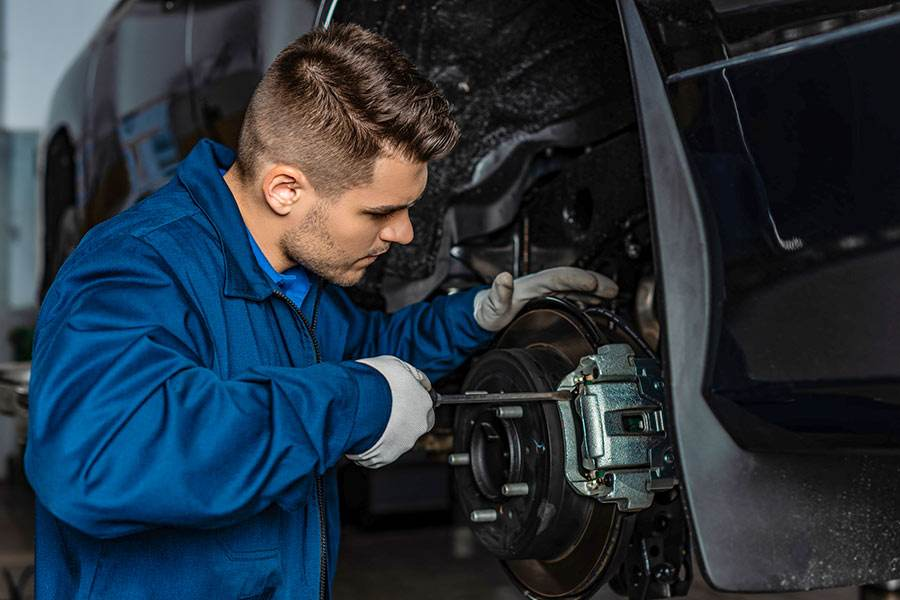
Seasonal Car Care: Preparing Your Vehicle for Every Weather
Maintaining your vehicle’s performance and longevity requires adapting your car care routine to the changing seasons. Each season presents unique challenges, from the freezing temperatures of winter to the scorching heat of summer. By taking proactive steps to prepare your vehicle for different weather conditions, you can avoid potential issues and ensure a smooth and safe driving experience year-round. This guide will walk you through essential car care tips for every season.

Winter: Protecting Your Vehicle in the Cold
Winter is perhaps the most demanding season for vehicles, with cold temperatures, snow, and ice creating a harsh environment for your car. Proper preparation can prevent winter-related problems and keep your vehicle running smoothly.
Key Winter Car Care Tips:
- Check Your Battery: Cold weather can significantly reduce your battery’s efficiency. Before winter sets in, have your battery tested and replace it if necessary. Ensure the terminals are clean and securely connected.
- Switch to Winter Tires: Winter tires are designed to provide better traction in snow and ice. If you live in an area with harsh winters, consider investing in a set of winter tires. Check the tire pressure regularly, as it can drop with the temperature.
- Use the Right Engine Oil: In colder climates, switching to a thinner oil can help your engine start more easily in low temperatures. Check your owner’s manual for the manufacturer’s recommendation for winter oil.
- Inspect Your Wiper Blades and Fluid: Visibility is crucial in winter conditions. Replace old wiper blades and fill your washer fluid reservoir with a winter-grade solution that won’t freeze.
- Keep an Emergency Kit: Equip your car with a winter emergency kit, including items like a blanket, ice scraper, jumper cables, and a small shovel. These can be lifesavers if you get stuck in the snow or face a breakdown.
Spring: Refresh and Renew
Spring is the perfect time to refresh your vehicle after the toll winter takes. As temperatures warm up and roads clear, focus on cleaning and inspecting your car to ensure it’s ready for the road ahead.
Key Spring Car Care Tips:
- Thorough Cleaning: Winter roads can leave salt and grime on your vehicle, which can lead to rust if not properly cleaned. Give your car a thorough wash, paying special attention to the undercarriage, and apply a coat of wax to protect the paint.
- Inspect Tires and Alignment: As you switch back to all-season tires, check them for wear and tear. Make sure they are properly aligned and balanced, as winter driving can sometimes knock them out of alignment.
- Check the Brakes: Winter conditions can be tough on brakes. Have them inspected for wear and replace the pads if necessary. Listen for any unusual noises when braking, which could indicate an issue.
- Replace Filters: Spring is a good time to replace your cabin air filter and engine air filter, especially after months of driving in dirty, wintery conditions.
- Test the Air Conditioning: Before the heat of summer arrives, test your air conditioning to ensure it’s working properly. If the system isn’t blowing cold air, it may need to be recharged or serviced.
Summer: Beat the Heat
Summer brings its own set of challenges, with high temperatures putting stress on various vehicle components. Keeping your car cool and preventing overheating is key during these months.
Key Summer Car Care Tips:
- Check the Cooling System: Ensure your radiator and cooling system are in top shape to prevent overheating. Check coolant levels and consider having your system flushed if it hasn’t been done in a while.
- Inspect Belts and Hoses: Heat can cause rubber components to crack and wear out faster. Inspect belts and hoses for any signs of deterioration and replace them if necessary.
- Maintain Proper Tire Pressure: Hot weather can cause tire pressure to rise, which can lead to blowouts. Check your tire pressure regularly and adjust as needed, following the manufacturer’s guidelines.
- Protect Your Interior: The sun’s UV rays can damage your car’s interior, causing it to fade and crack. Use sunshades, apply a UV protectant to the dashboard, and park in the shade whenever possible.
- Monitor Fluid Levels: High temperatures can cause fluids like oil, transmission fluid, and brake fluid to evaporate more quickly. Regularly check and top off these fluids as needed.
Fall: Prepare for the Cold Again
As fall approaches, it’s time to start preparing your vehicle for the upcoming winter. The focus should be on ensuring that your car is ready for colder temperatures and more challenging driving conditions.
Key Fall Car Care Tips:
- Check the Battery Again: As temperatures drop, make sure your battery is still in good condition. Fall is a good time to replace it if it’s nearing the end of its life.
- Inspect the Heater and Defroster: Ensure your heating system and defroster are working properly before winter arrives. A malfunctioning heater can make driving uncomfortable and unsafe.
- Replace Wiper Blades: Fall rains require good visibility. Replace your wiper blades if they’re streaking or skipping, and ensure your washer fluid is topped up.
- Examine the Tires: As with spring, fall is a good time to inspect your tires. Make sure they have sufficient tread depth for winter driving and consider switching to winter tires if necessary.
- Check the Lights: With shorter days ahead, ensure all your lights, including headlights, brake lights, and turn signals, are functioning properly.
Conclusion
Seasonal car care is essential for keeping your vehicle in top condition throughout the year. By adjusting your maintenance routine to the demands of each season, you can prevent common issues, enhance your car’s performance, and extend its lifespan. Regular checks and timely interventions will ensure that you’re prepared for whatever the weather throws your way.




